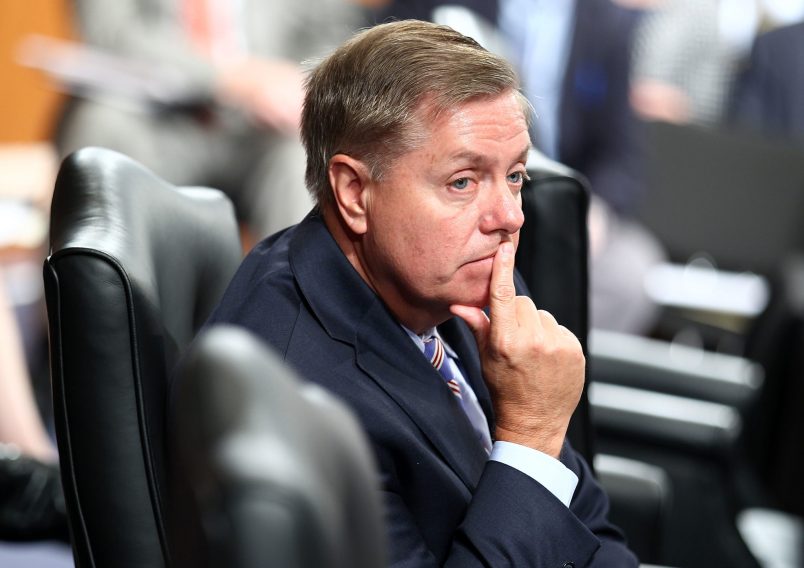A federal judge on Thursday again declined to quash Sen. Lindsay Graham’s (R-SC) bid to avoid testifying to a Georgia grand jury investigating Donald Trump’s interference in the 2020 election. But the judge did limit the issues on which Graham could be questioned.
Specifically, U.S. District Judge Leigh Martin May partially quashed the grand jury subpoena limiting it to questions about “investigatory fact-finding on telephone calls to Georgia election officials,” a reference to Graham’s calls to Georgia Secretary of State Brad Raffensperger after the 2020 vote.
The “partial quashal” also includes “how such information related to his decision to certify the results of the 2020 presidential election,” May wrote. Fulton County District Attorney Fani Willis has sought to question Graham and others in Trump’s circle before a grand jury for months.
Last week, in another attempt to avoid testifying after an appeals court granted Graham a brief delay, the senator claimed broad protections under the Constitution’s Speech or Debate Clause for lawmakers. And on Thursday, May scolded Graham for attempting to have the entire subpoena quashed, which both May’s court and the 11th Circuit Court of Appeals have already said was not on the table, as opposed to a partial quashal or modification of the subpoena, as the judge ruled.
However, May did write that Graham could be questioned on things not related to his legislative duties, including “any alleged efforts to encourage Secretary Raffensperger or others to throw out ballots or otherwise alter Georgia’s election practices and procedures.”
Graham could also be questioned on his “alleged communications and coordination with the Trump Campaign and its post-election efforts in Georgia, as well as into Senator Graham’s public statements related to Georgia’s 2020 elections,” the judge wrote.
Graham had argued that these topics were just “backdoor” efforts to get him to talk about his motivations for making the calls to Raffensperger – and therefore impermissible under the speech and Debate Clause – but the judge didn’t buy it.
“To the extent Senator Graham would face questioning about his alleged coordination or communication with the Trump Campaign and its post-election efforts in Georgia on topics other than the phone calls, those questions are permitted because any such actions (i.e., potentially coordinating with a political campaign to participate in or advance that campaign’s post-election efforts in Georgia) are fundamentally ‘political in nature rather than legislative’ and therefore do not fall within the protections of the Speech or Debate Clause,” he wrote.
And Graham’s calls to Raffensperger aren’t totally off-limits either, May said. For one thing, Raffensperger has said the discussions weren’t entirely legislative, as Graham claimed, but rather that Graham suggested Raffensperger should take steps that could potentially alter the election results, including throwing out ballots.
“Of course, ‘cajoling’ officials from a different branch of government in that manner is not legislative activity,” the judge wrote in a footnote.
He added later: “The Court does not find that it can simply accept Senator Graham’s sweeping and conclusory characterizations of the calls and ignore other objective facts in the record that call Senator Graham’s characterizations into question.”







As expected. As is Lindsey’s appeal to this decision. I am fairly certain that Fulton County prosecutor Fani Willis has no particular interest in Lindsey’s “speech and debate fact-finding questions” Guessing that Willis knows exactly what to ask about his attempts to persuade or threaten. Lindsey is running scared. Lindsey thinks if he can postpone long enough, all “shoes will have dropped,” and that he can muddle through without trouble.
Is planning or participating in a coup a legislative duty?
Oh Linz. They have some questions, and you have the 5th.
Graham’s fright and evasion of Willis’ questioning betrays his guilt. What is so beautiful about this is that all the delaying tactics simply amplify Graham’s appearance not only of guilt, but abject guilt.
Ugh. There’s a phrase I could do without.